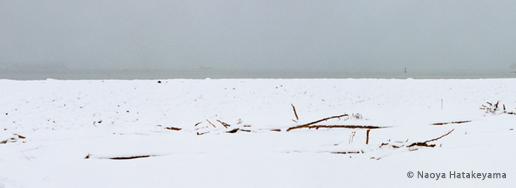F/T12 Jelinek Series: Kein Licht.
Direction: Motoi Miura (Chiten) [Japan]
Musical Direction: Masahiro Miwa [Japan]

Performing Arts Festival launching from Tokyo
Globally acclaimed writer Elfriede Jelinek was awarded the Nobel Prize for Literature in 2004 for "for her musical flow of voices and counter-voices in novels and plays that with extraordinary linguistic zeal reveal the absurdity of society's clichés and their subjugating power". Witnessing last yearʼs catastrophic Great East Japan Earthquake and tsunami, and the subsequent Fukushima nuclear disaster, Jelinekʼs response was the play "Kein Licht."
F/T12 will see director Motoi Miura intricately decode and reconstruct the diverse text for this Japan premiere, with musical direction handled by Masahiro Miwa, known for his edgy techniques and complex exploration of the relationship between electricity, sound, and humanity.
Commissioned by the Schauspiel Köln before the disaster to write something about contemporary democracy, following the events of March 11, 2011, Jelinek instead created "Kein Licht.", completed over the summer of last year and then premiered in Cologne in September.
The play evolves from the dialogue between two unnamed violinists, who can neither hear their own voices nor the sounds of what they play. And yet they continue to play in this cold and dark place, ignoring the drifting sounds, the echoing noise of screaming, whispering, crying. Gradually it gets brighter and we see the dead, washed up and contaminated with mud. But they are not silent; like zombies they are are not dead but rather all they do is speak incessantly.
This is a condition where you do not understand from where your voice or sound comes - or to where it resonates. This chaos and unease symbolizes the current state of Japan, a radiating abundance of the words of the dead. For Jelinek, viewing the media reports on the disaster from a far away alien land, "Kein Licht." shows her attitude towards the condition enforced by the events.
Her text is distinct in its lack of clear settings for character or place, composed of language that is like a net of intertwining and diverse meanings. Drawing on references to philosophy, literature, mass culture and mass media, Jelinek revels in the wordplay and nuances of double meanings, such as in the German word for "radiate", which like English can apply to both a beaming light and the emittance of radiation, resulting in infinitely expanding motifs and images.
Major reference points are the satyr play "Ichneutae" by Sophocles and an essay by the French critic and theorist René Girard. The former tells of the birth of the lyre and the use of a stretched dead cowʼs skin as an instrument, producing sound no human had ever heard. Girardʼs writing, meanwhile, discusses the difference between tragedy and comedy, and the concept of human tears and pollution being catharsis. Jelinekʼs text utilizes the two texts to expand the meanings of words like "light" (radiation), "pollution" (tsunami) and "sound", creating a linguistic experience for the audience that grasps the complexity of human history and the current reality that cannot be united into a single interpretation.
Director Motoi Miura (Chiten) is known for taking existing plays and texts, and confronting the question of how to stage something, all while linking and layering elements of language, movement, light and sound. At the heart of this is the question of whether, before the actors themselves even appear on stage, can you articulate the words of the text? With the performers as intermediaries, Miura creates a special kind of voice through the unique "Chiten-ese" way of speaking and structuring sentences.
On the other hand, Masahiro Miwa established the Formant Brothers in 2000 with Nobuyasu Sakonda, investigating problems of technology and the arts, and generating a "voice" by a computer algorithm, exposing the formation and the construction of sound itself.
Miwa and Miura will together create the sound of Jelinekʼs words as the voices of the dead, a requiem of anger.
Masahiro Miwa